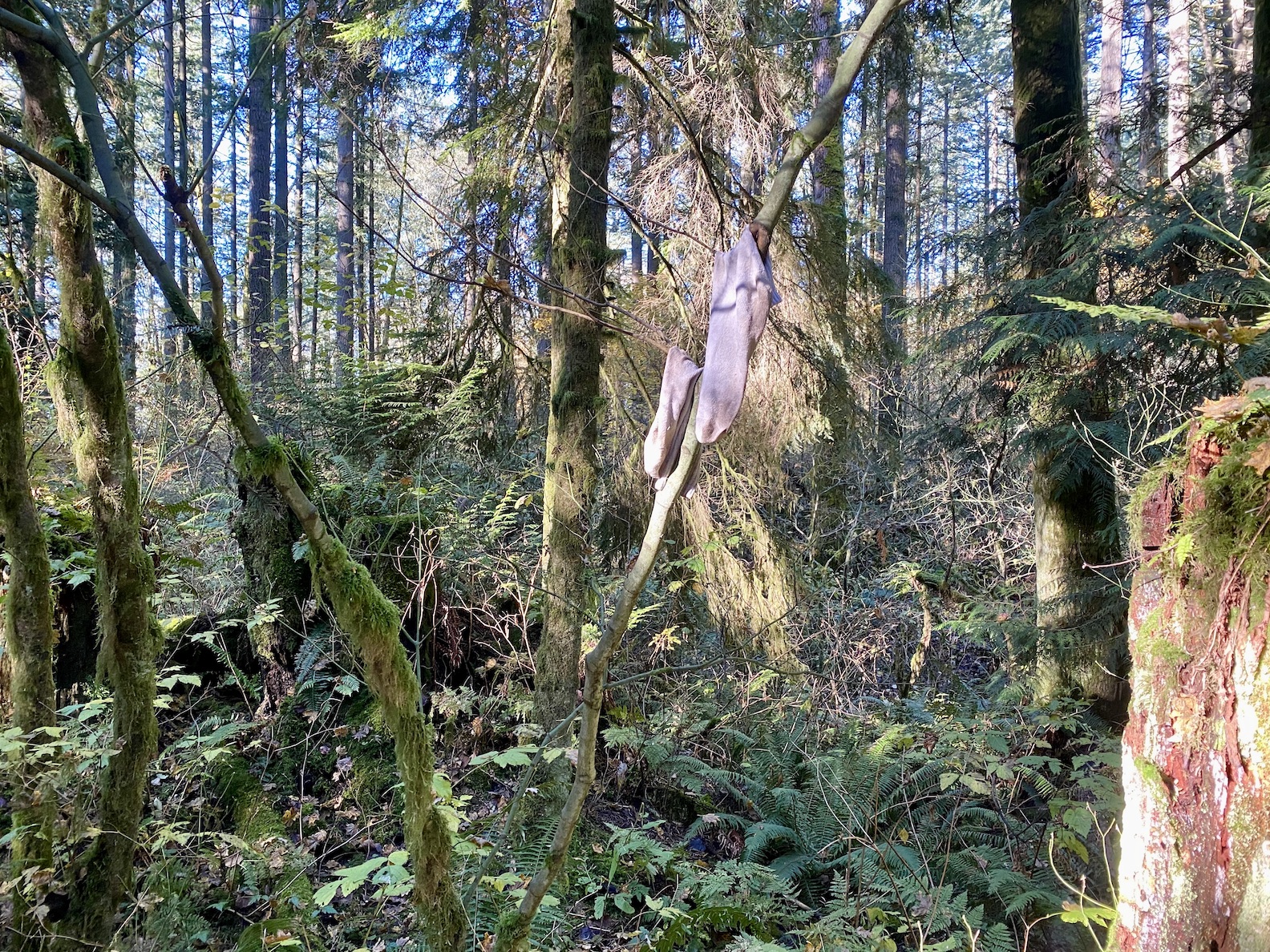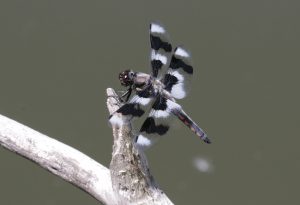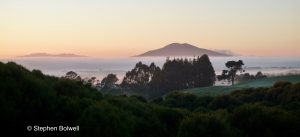For many years I travelled to interesting places to film wildlife, and would usually pointed my camera in the direction that would achieve the most agreeable results, because if I turned in the opposite direction it was often impossible to hide the impact of human activity: sometimes there would be plastic flapping in the wind on a barbed-wire fence; or a forest with its under-storey eaten bare by livestock, perhaps even a forest being felled. My job it seemed was to give a positive spin to the way the natural world looked, even when things weren’t quite right.
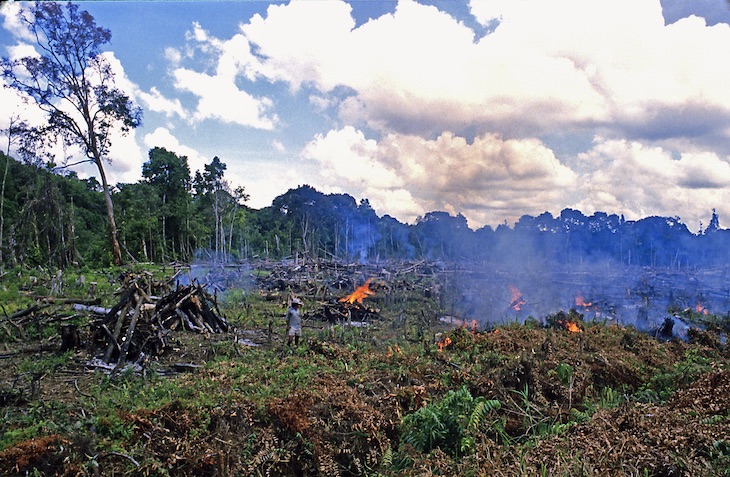
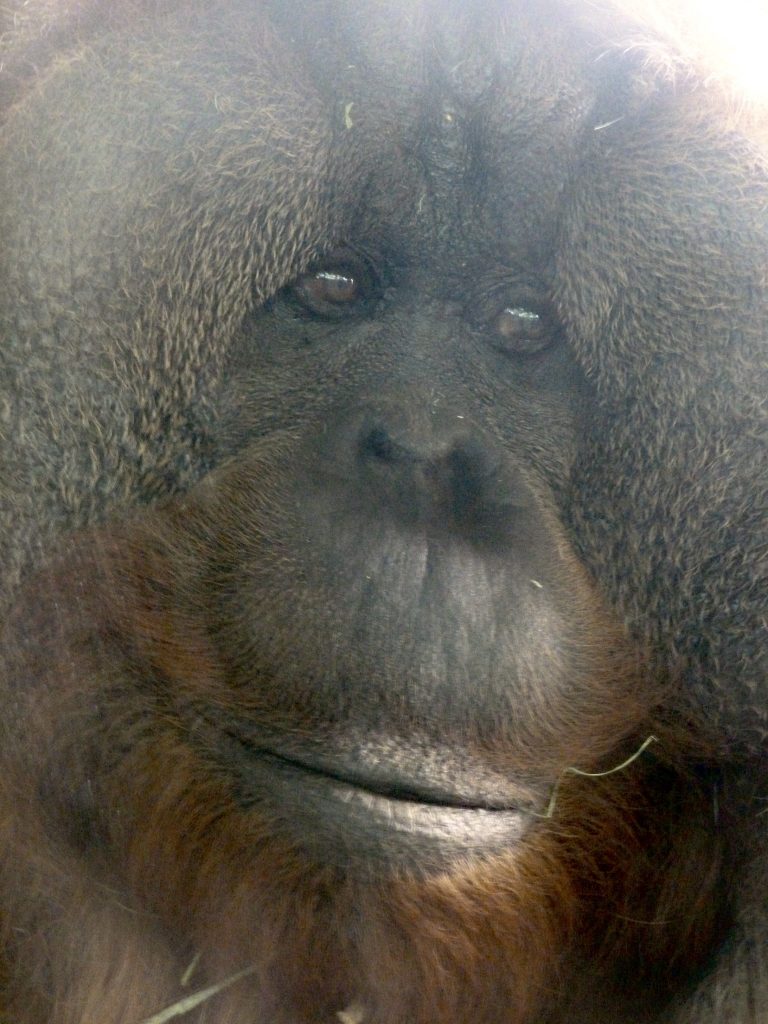
As time passes, getting agreeable results when filming wildlife has become increasingly difficult with many natural environments now so degraded they can no longer support complex ecosystems. This unfortunate situation suggests that it’s time to tell things the way they are, even when the audience doesn’t want to hear bad news. It seems there always has to be a positive spin to keep people watching, but rescuing a handful of orangutans will not make a meaningful difference to their impending extinction. There is no doubt that our minds are like little story boxes that prefer the dishonest comfort of happy endings rather than the truth, even when reality runs against our beliefs.
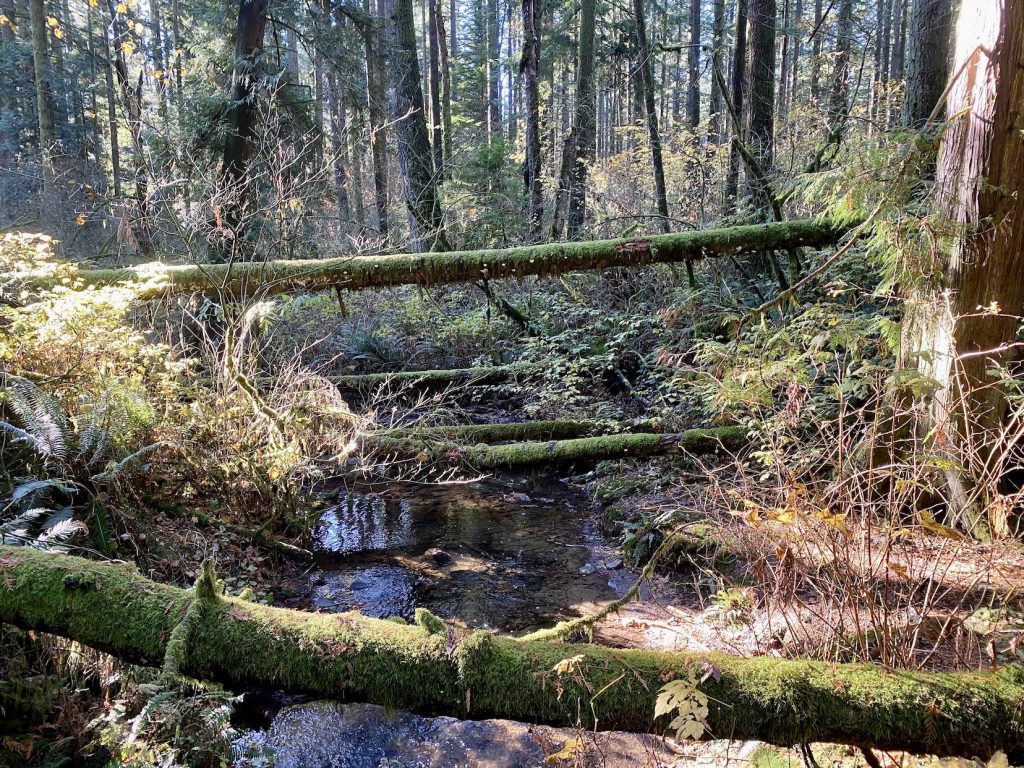
I live not far from a park which is close to a Canadian city centre, but despite this, it still manages to look fairly natural, although everything that surrounds the park has been developed. I say looks fairly natural, but the truth is, all the old growth forests was logged out by the 1930s; but the environment still appears agreeable when viewed uncritically, because the damp, temperate local conditions encourage the growth of fungi, mosses, lichens and ferns, which make the place look quite photogenic, despite there being no original forest left standing. The parks present appearance fools most people into thinking that it is useful natural environment, when in reality the young secondary forest lacks the diversity of the once expansive virgin forest that covered the region less than 150 years ago. Our preference though is to remain ignorant of information that makes us feel uncomfortable: the logging caused the destruction of a complex habitat over a very short period of time; and for very short term ‘profit’. Most of us accept this as ‘progress’, but there is an environmental cost that many of us fail to recognize.
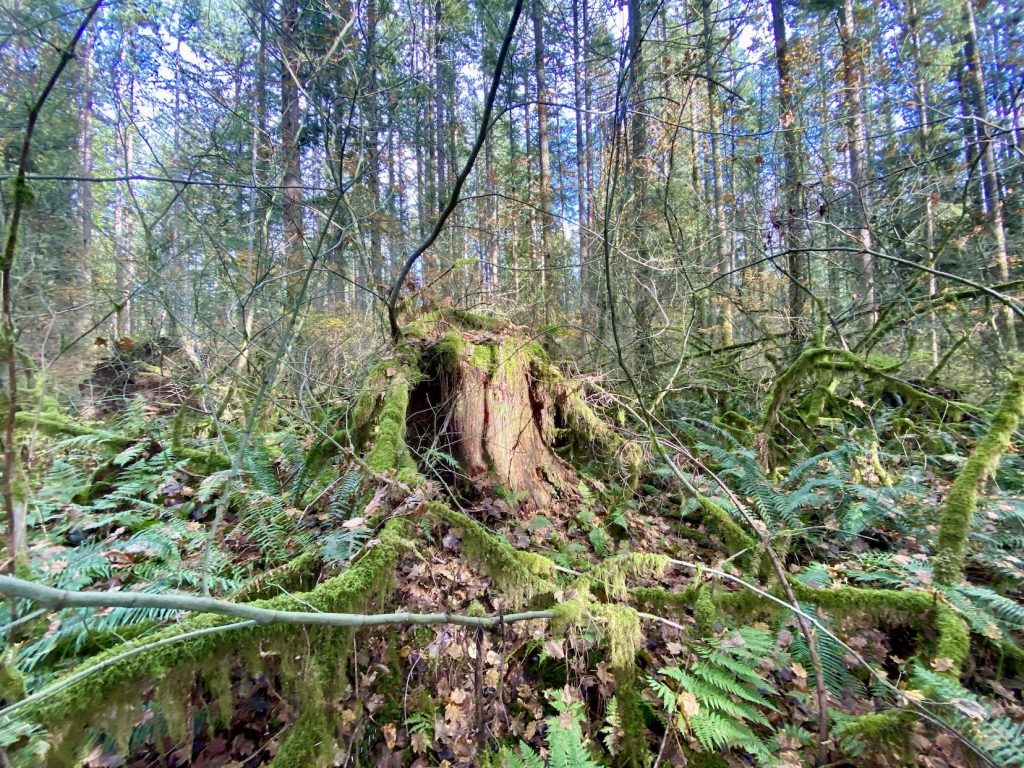
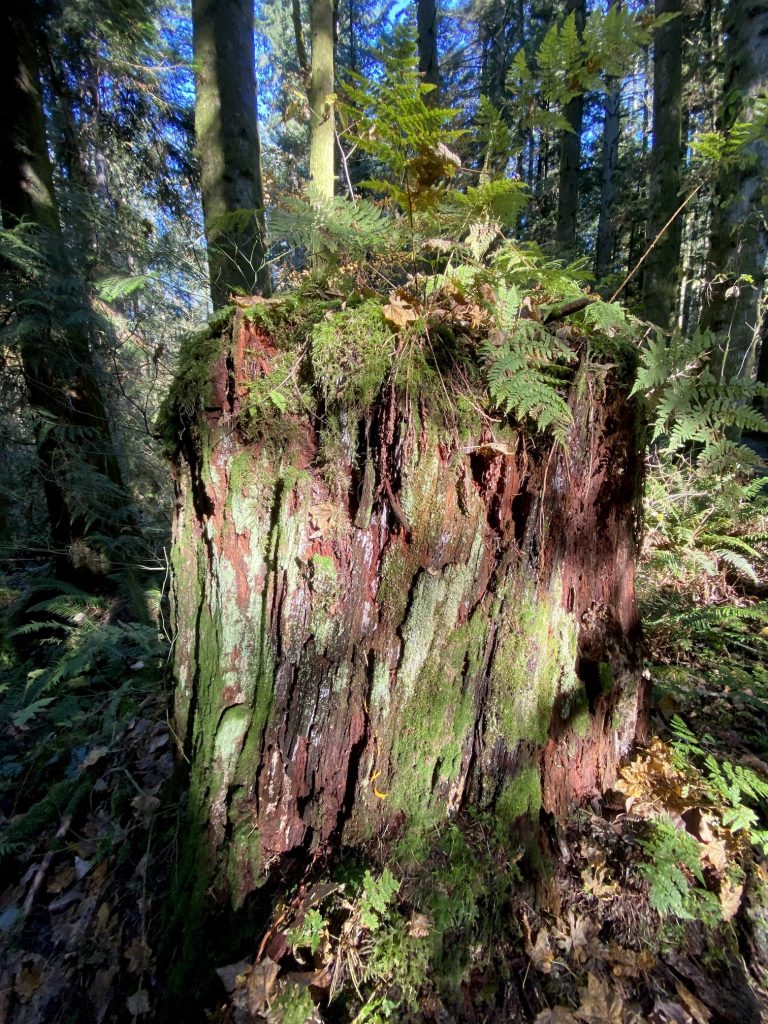
One might expect this small remnant of woodland to be much appreciated, but it is not respected by all who enter. The question is: should we be surprised, with today, so many North Americans losing contact with both the natural world and with reality; although in Canada, people manage to do it very politely.
The increasingly poor state of natural environments is a warning sign: when we fail to respect the natural world it inevitably bites back. Presently, the spread of COVID-19 is the most pressing problem we face, with infection rates once again rising, but a few miles to the south, across the border in the USA, things are very much worse.
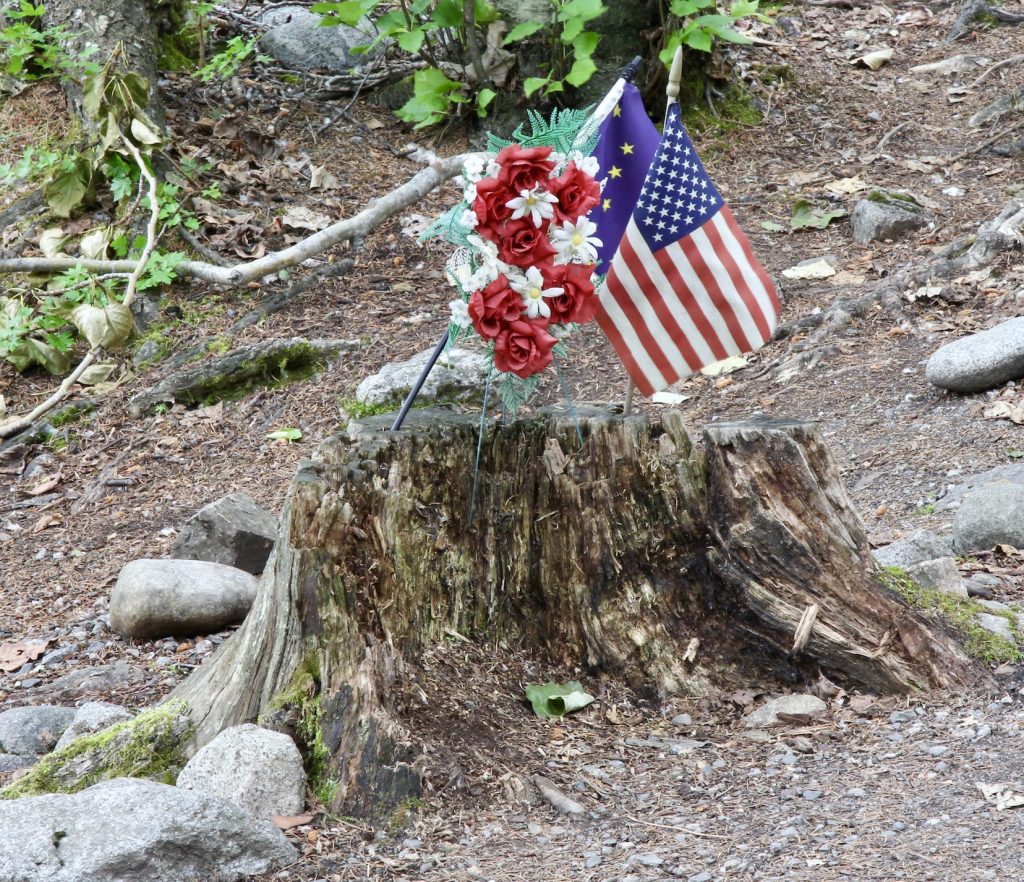
In the US the leader of the free world has just been beaten in an election by a Democrat, but he remains holed up in the White House in denial. Two weeks after polling, the President has still been claiming victory, venturing out only to play golf and with nothing much else on the to-do list; this at a time when COVID-19 has totalled a loss of 240,000 lives, and with ever increasing rates of infection, people have been dying in record numbers. It would not be unfair to say that President Trump has not been especially proactive in responding to the epidemic anymore than he has in dealing with environmental issues, and yet he has still managed to achieved almost 74 million votes, that’s close to 7 million more than he achieved when first elected to office in 2016. There is something odd about all of this though, because many of his supporters would traditionally be expected to vote for a Democrat, but many feel let down by recent Liberal priorities, and have gone with what they consider an outsider to politics. Certainly Trump supporters are disappointed that he has lost the election; but it is odd that so many found it necessary to stand outside of polling stations in militaristic dress, carrying automatic weapons as if they were living in a banana republic, rather than what they consider to be the greatest country in the world.
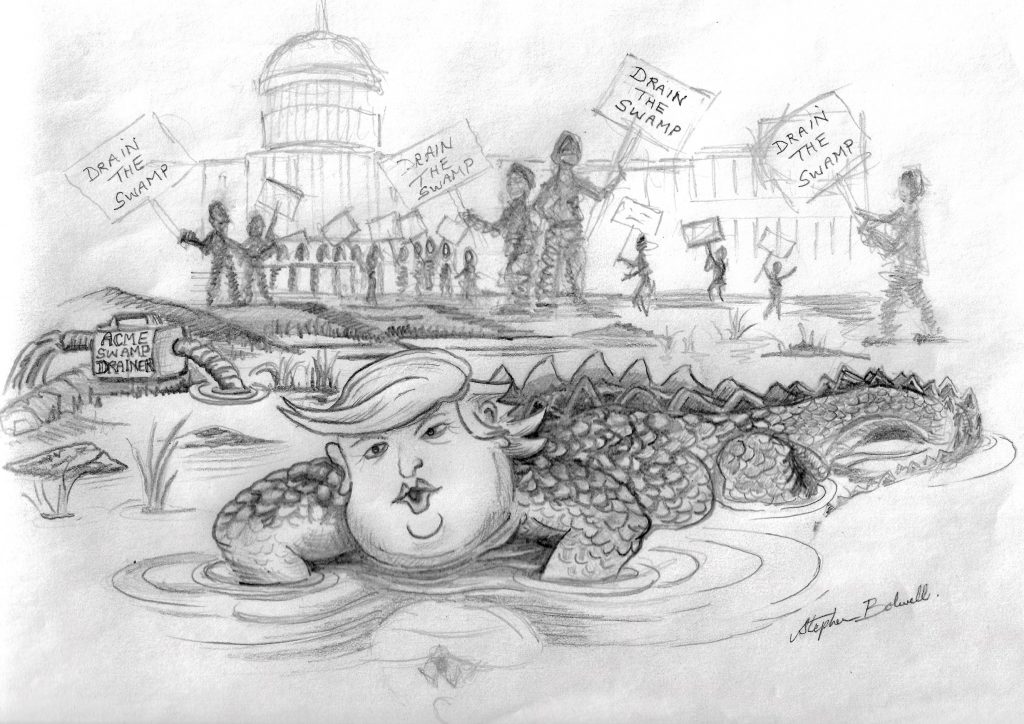
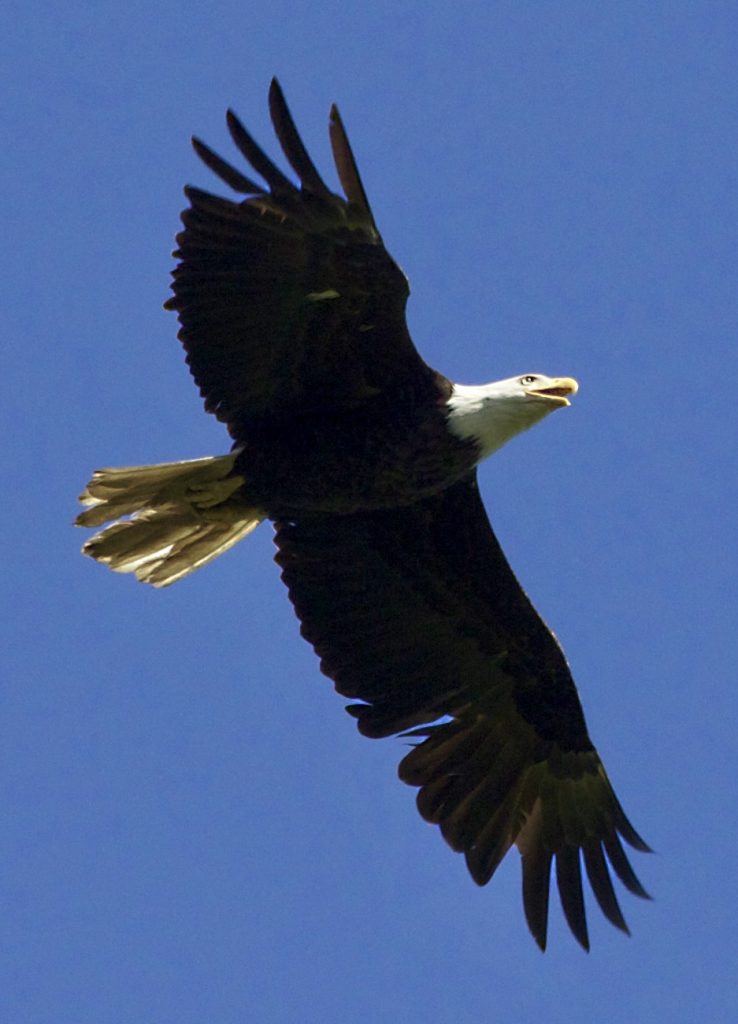
The Democratic candidate Joe Biden is President Elect having achieved close to 80 million votes in the recent 2020 election — more than any other president in US history, but he is having trouble gaining co-operation from the present incumbent. Historically after most elections the change of power has progressed through a transition period in a smooth and civilised manner, but not this time. There is talk of civil war, but dissent is both fragmented and disorganized and hopefully it won’t come to that.
Despite the enormous political divide, after the election Joe Biden attempted a unifying speech in Delaware and referred to important issues being guided by science, particularly COVID-19 for which he is setting up a task force. However, Biden only managed to speak for around 5 minutes before quoting the Bible, and over the course of a 15 minute speech made more than half a dozen references to the supernatural; including angels, an uplifting hymn and various blessings from God. The American Constitution doesn’t explicitly mention God, and it is therefore surprising that a supernatural being is featured in all the individual state constitutions; and many Americans do not find it incongruous that their politicians frequently refer to science and religion in the same breath, given that one discipline is based on rational thought and the other isn’t; but then I’ve spent most of my formative years in Britain where any mention of God by a politician is usually considered political suicide.
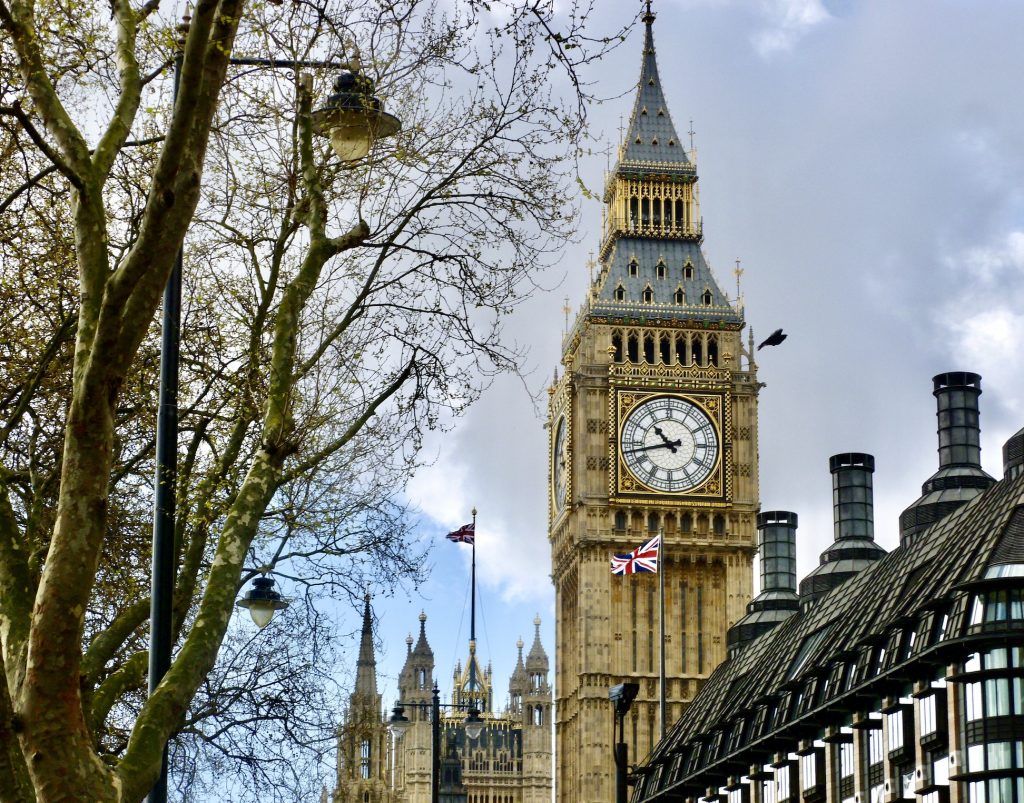
Essentially the disease is not being effectively dealt with in a great many countries, and the recent news that three vaccines are to be made available next year (one claimed more than 90% effective, the other two 95%), has offered as a ray of hope to what has become a truly depressing run of the disease. Despite the good news it has been suggested that 25% of people in developed countries may decline the vaccine because they prioritise conspiracy theories over science, despite the latter providing most of the improvements achieved in health and living standards over the last 120 years.

The point is, that if this is the way things are with a global pandemic, what hope is there for species loss and climate change, both of which are presently very much on the back burner. The question is: will we ever overcome our superstious natures and innate tribalism to work together more co-operatively on troubling global issues; or are we destined to stumble along plagued by superstition with so many of us searcing out ‘alternative facts’ of which there of course none. Sadly if the prevailing stupidity continues we might be destined to go the same way as my local forest, which is certainly not as it should be and in consequence may have limited long-term viability.
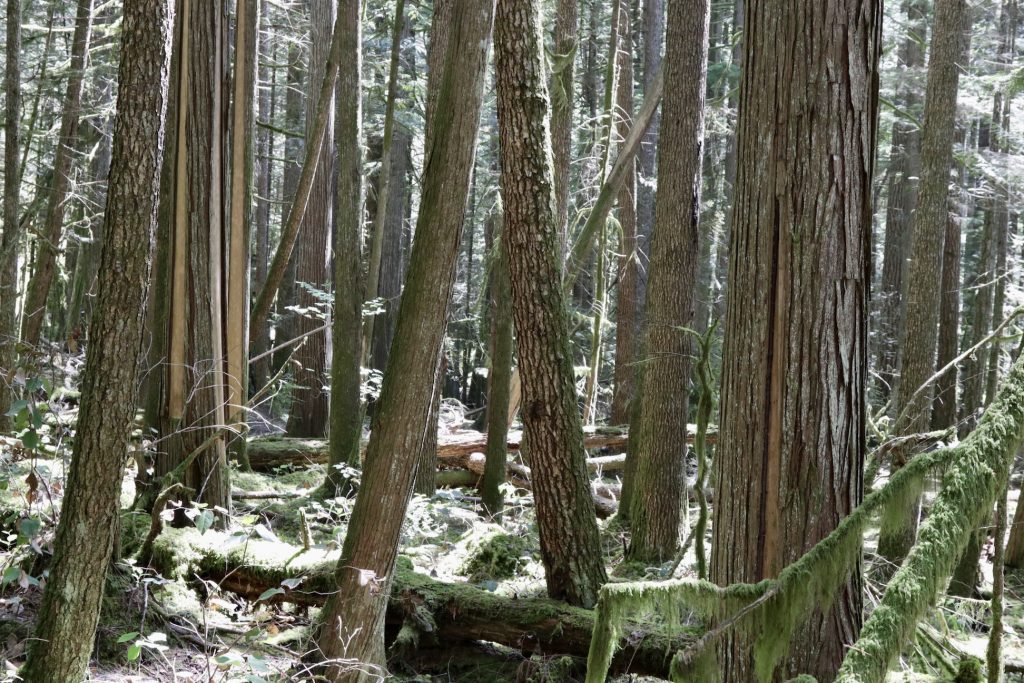
It could be that humans are not programmed for planning ahead on a global scale, with our powers of destruction outstripping our ability to think rationally. So, perhaps it would be better for my state of mind, if I continued to look the other way, just as I once did when filming nature, and ignore the obvious problems around me. The trouble is, as with palm oil plantations, there are increasingly fewer directions to look for a positive view, and so it is necessary to start making excuses not only for all the crap that’s happening in the natural world, but also all the crap that’s going on inside our heads, because very little appears to be changing for the better.
The secret of remaining sane in these troubled times, is to think delusionally… no problem, I can make this change straight away as I assess the trip I recently made with my wife to the local woodland I referred to earlier, where we spent a pleasant afternoon walking around taking pictures of all the things that weren’t quite right.
Into the woods:
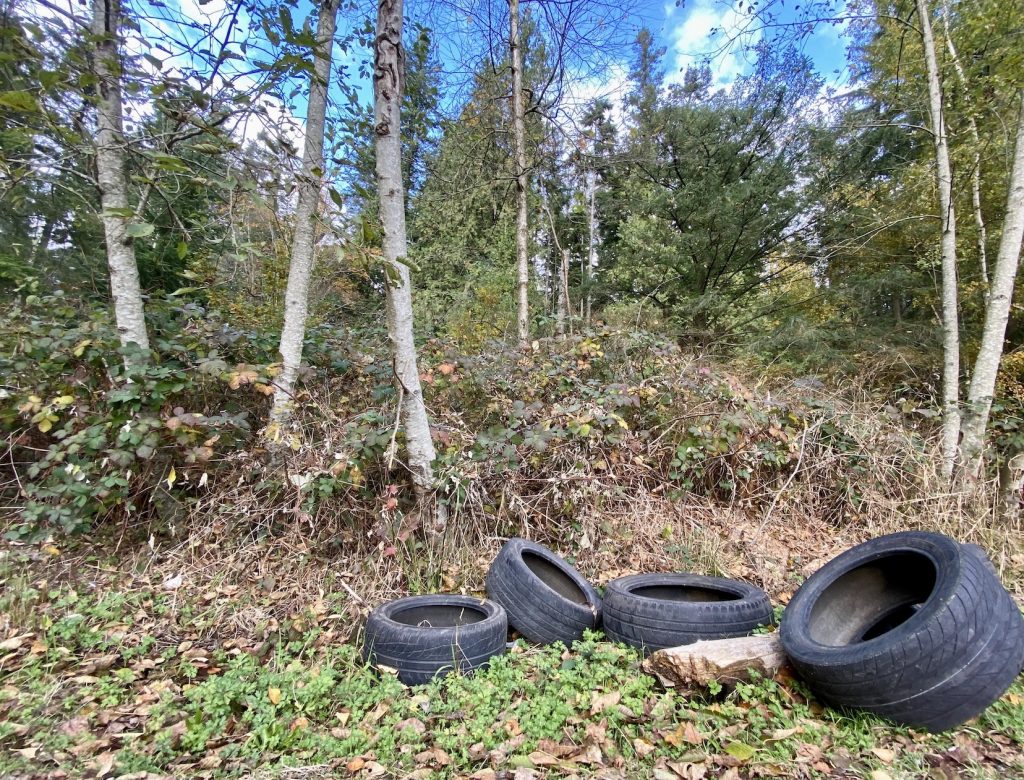
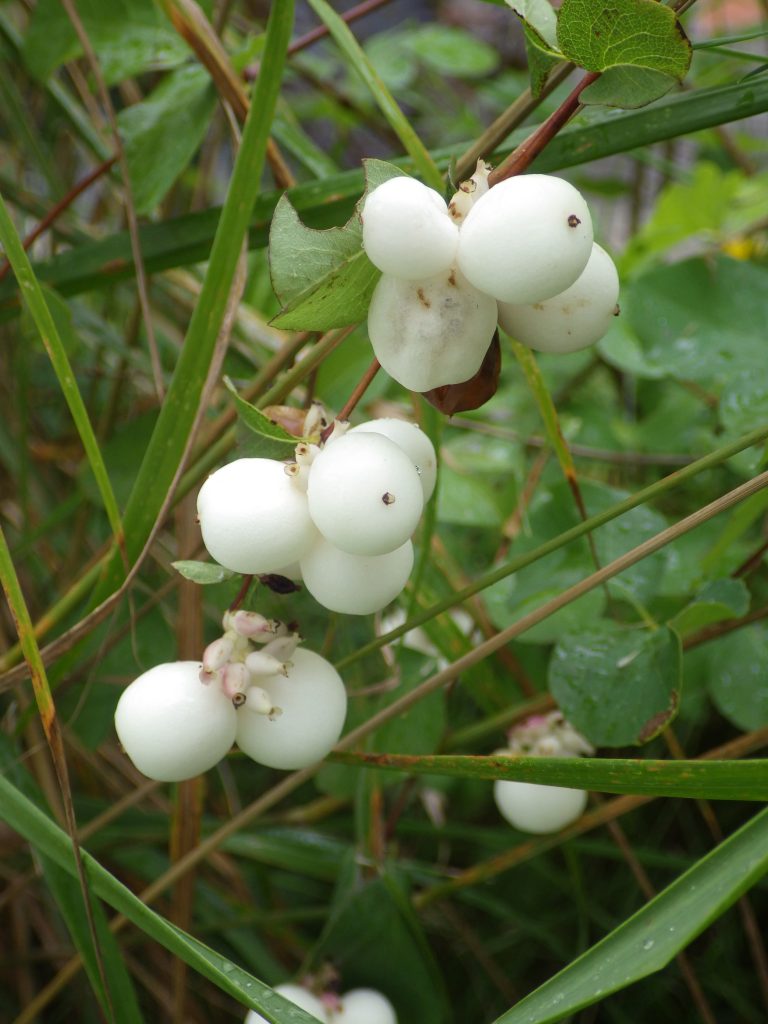
Once in the forest, our walk seemed to lack a diversity of colour; we noticed a lot of unnecessary dun browns with altogether too many shades of green, when what was really required was the complimentary colour red (from the opposite side of the colour wheel), to set things off nicely. A painter might easily add a traveller wearing a red jacket to his landscape, but for the photographer in the woods, red is not always forthcoming, unless there are berries… but only if they are red berries.
Then I saw my opportunity.
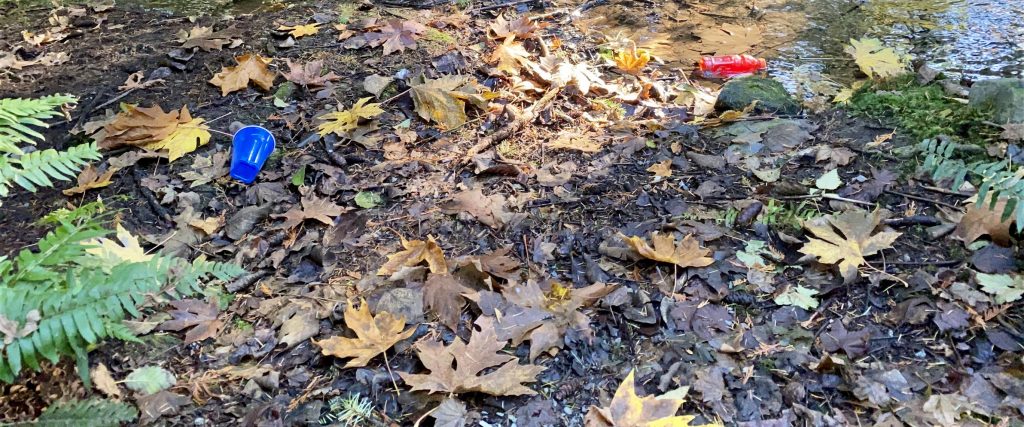
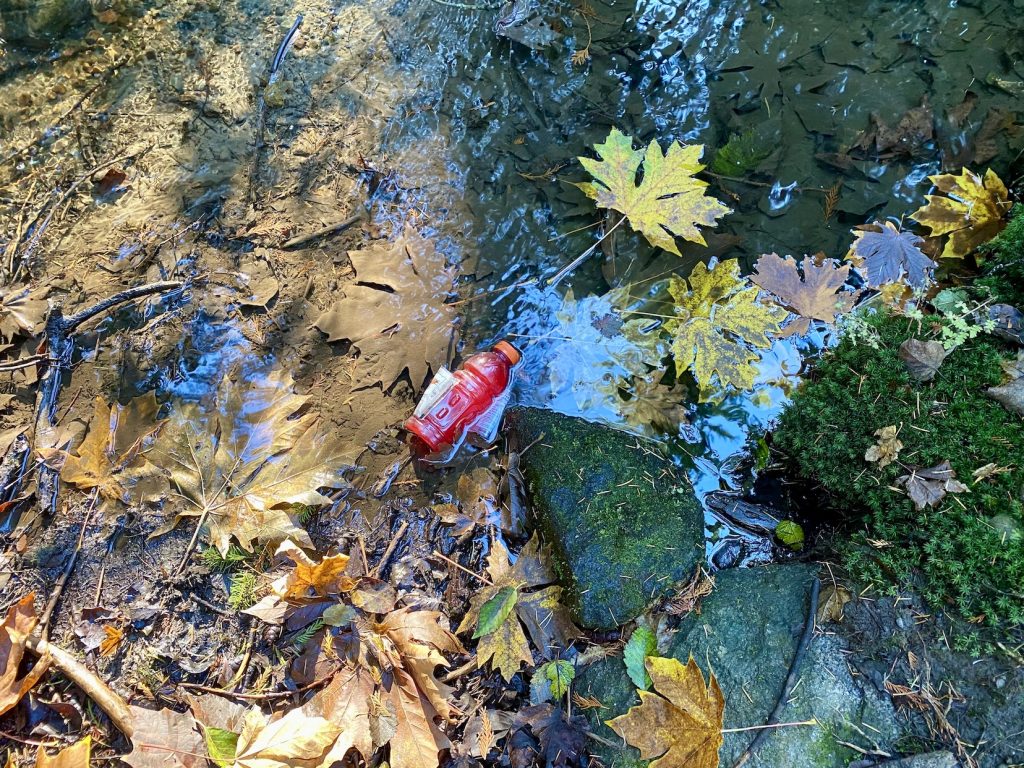
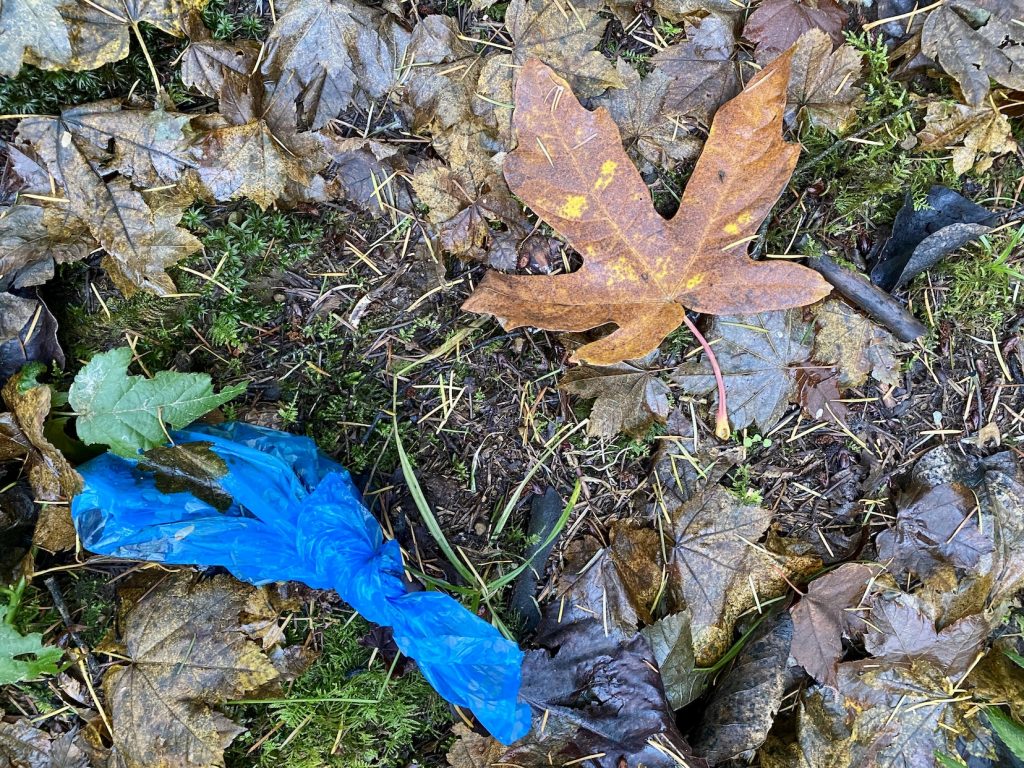
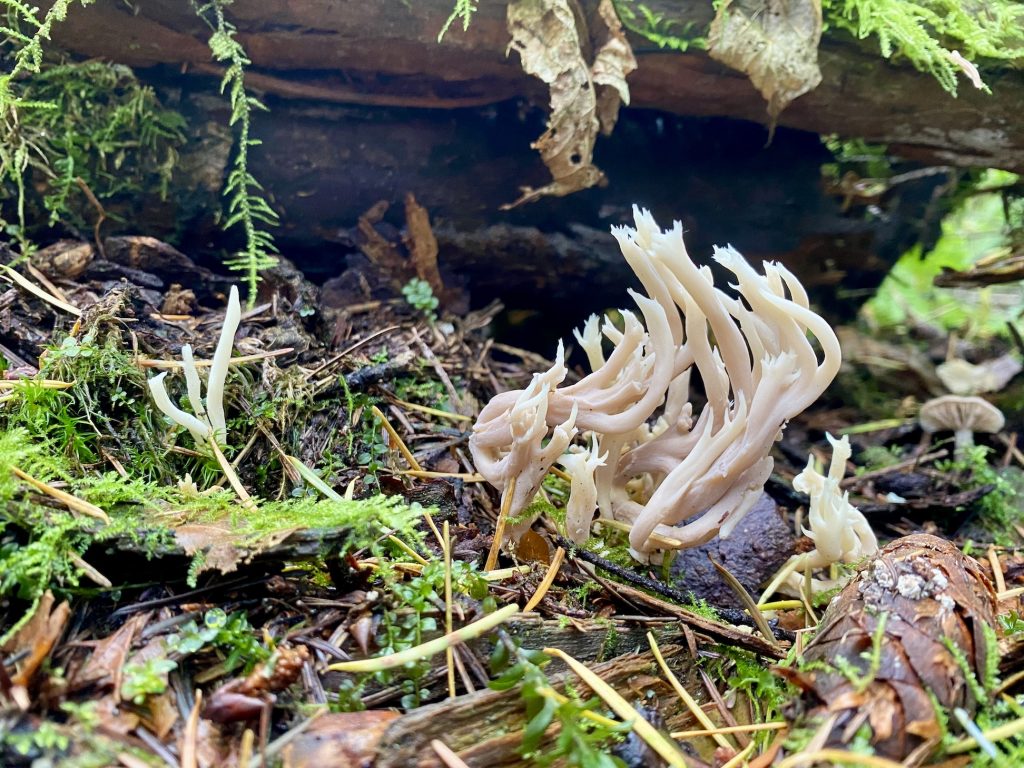
Many years ago the British naturalist William Gilpin extolled the wonder of a tree, by pointing out how each is formed by circumstances of environment and weather into a unique individuals — no two are ever the same; but these observations were made long before plastic was invented and had Gilpin the good fortune to be confronted by the many varied forms of the plastic bag.
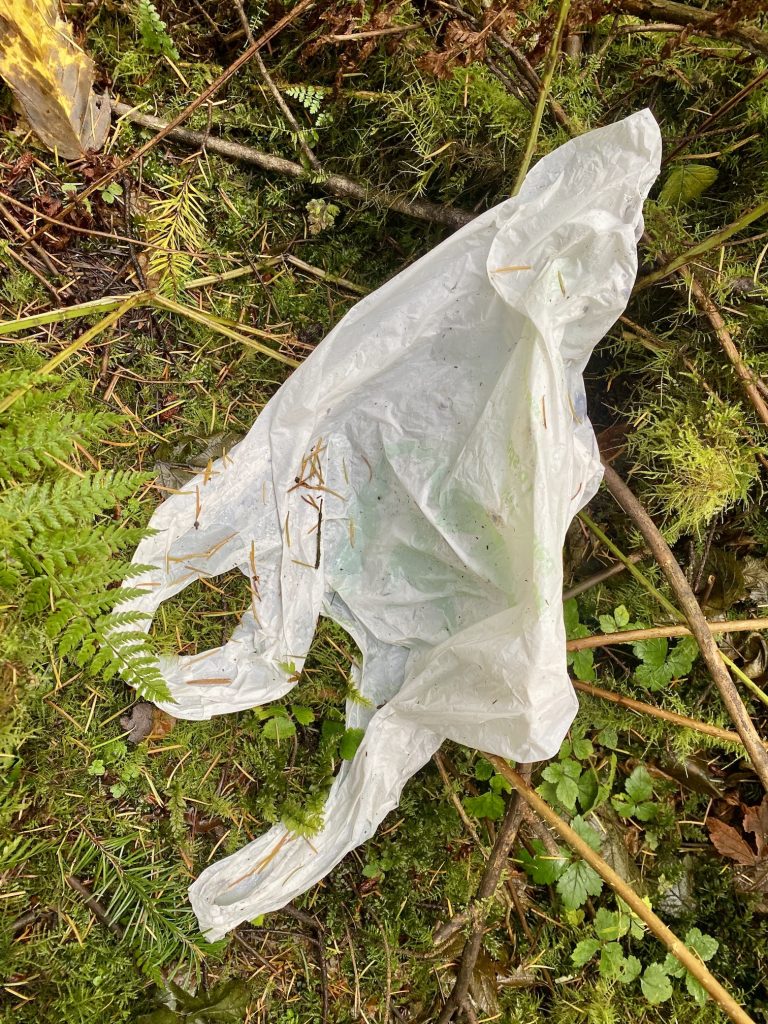
Liberated into the wild they are carried by wind and water to wherever fortune takes them, travelling in their millions to every part of the globe, raising our spirits as an international symbol of freedom. You can’t help but admire the wild bag o’ the forest — it fits right in.
It was also a delight to discover a discarded umbrella — if it could talk what stories an old umbrella might tell. This one has become so much part of the landscape. it might be considered as nothing short of a work of art.
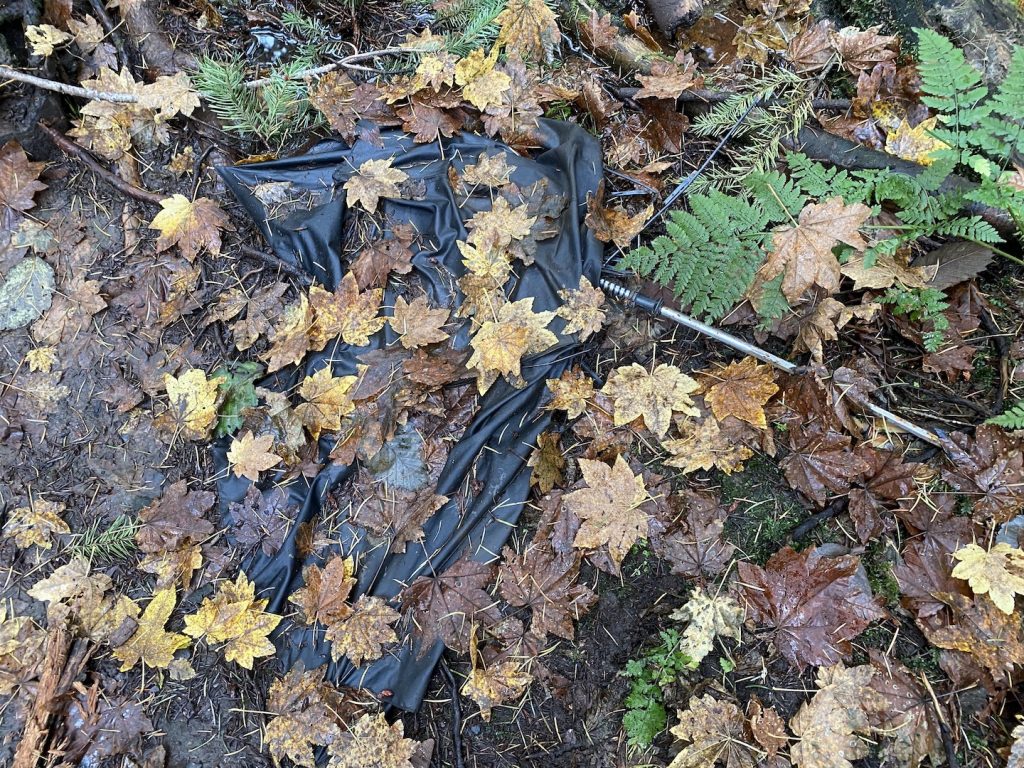
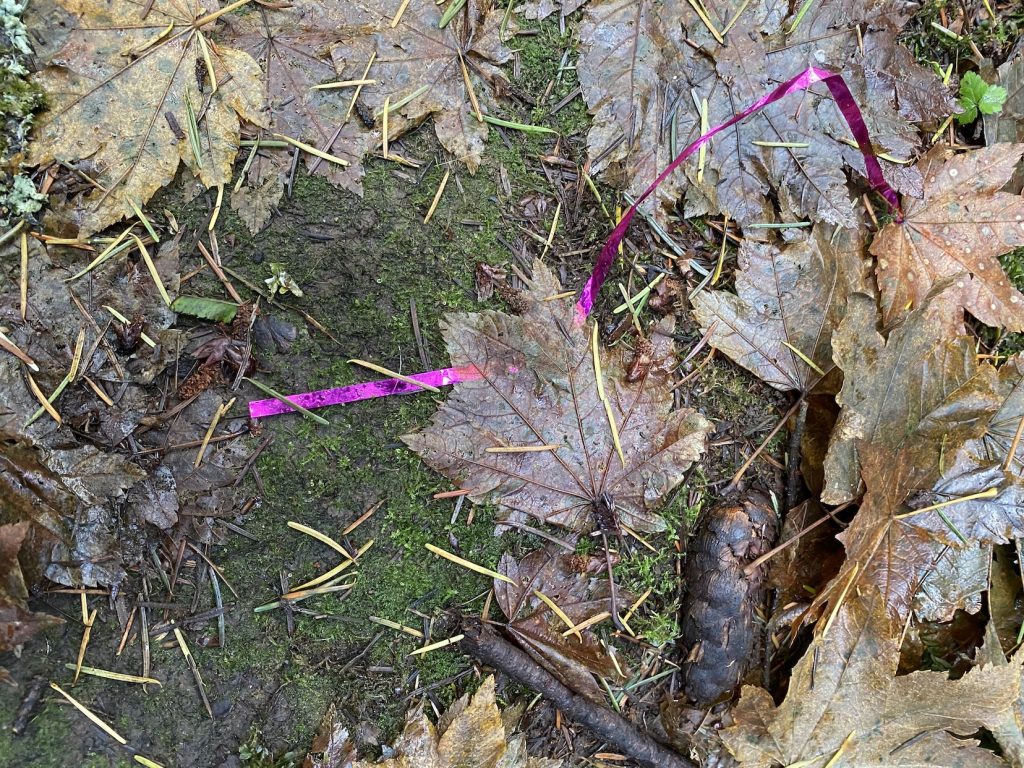
We were fortunate enough to also see a woodland bird, a varied thrush, which we don’t see as often as we did when we arrived on the Lower Mainland 10 years ago. This is because during that time, woodland areas have been reduced; but I’m not sure it matters. There’s a good deal more colouful plastic to look at now than there used to be, and the thrush’s plumage can’t compete; if the bird should disappear, there will be no shortage of colourful plastic on the forest floor to replace it.
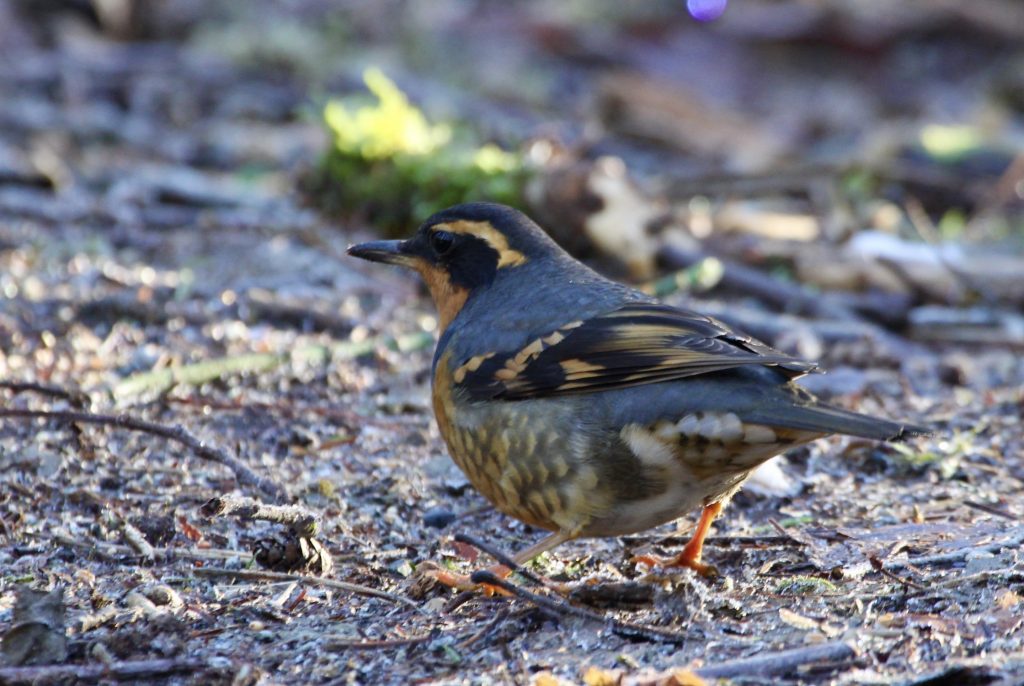
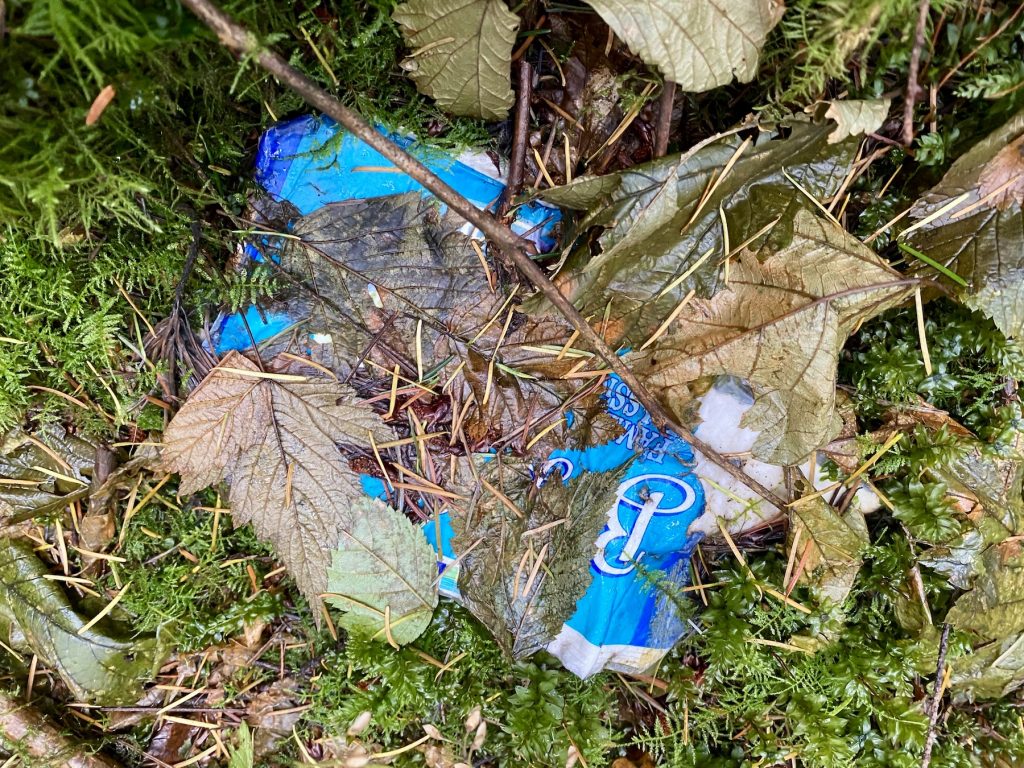
Colourful plastic, or dull old varied thrush? I know which one I’d choose.
This looks like one of those back packs that can be used as a small child carrier; left on a bridge post it added yet another beautiful blue to the forest landscape. But why would such a thing have been left by a woodland stream — I can only think that by some miracle, a child was carried in and then suddenly developed the ability to walk and toddled cheerfully out of the forest to the delight of its parents.
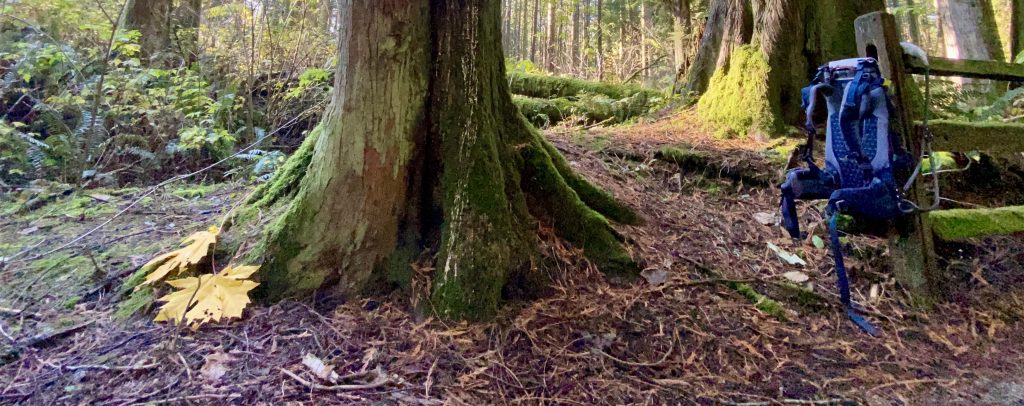
Jen stops to take a picture of a group of toadstools growing on a log by the path, and it occurs to me how colourful her jacket of Perfluorocarbons appears in a woodland setting, and I at once make a suggestion.
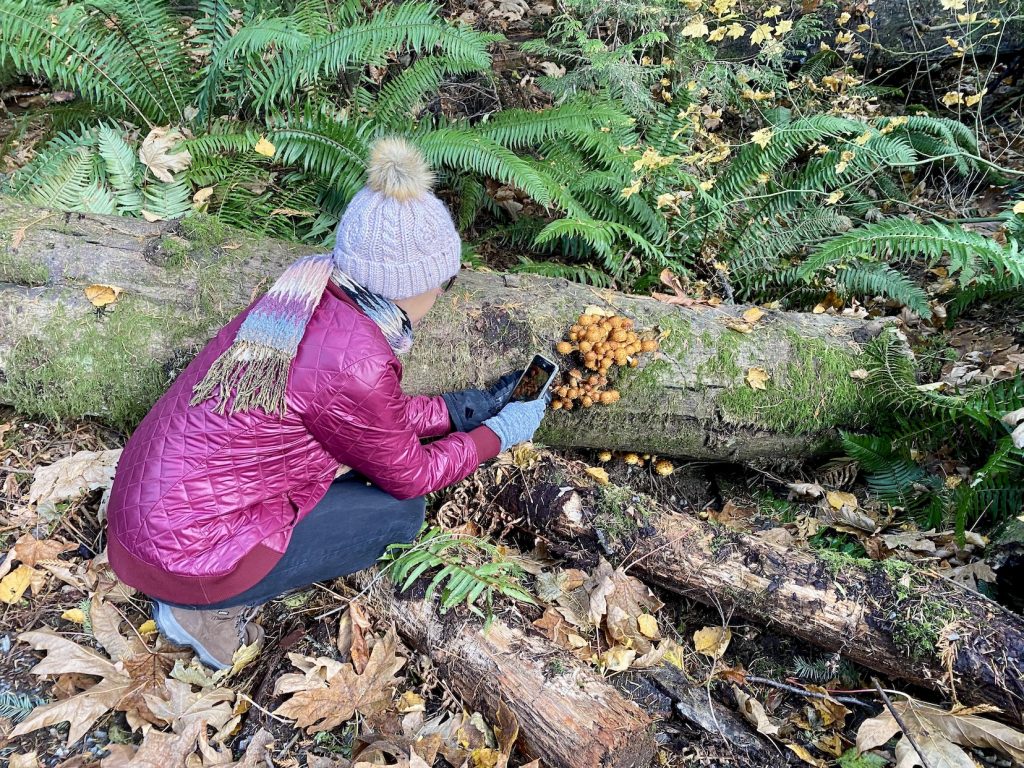
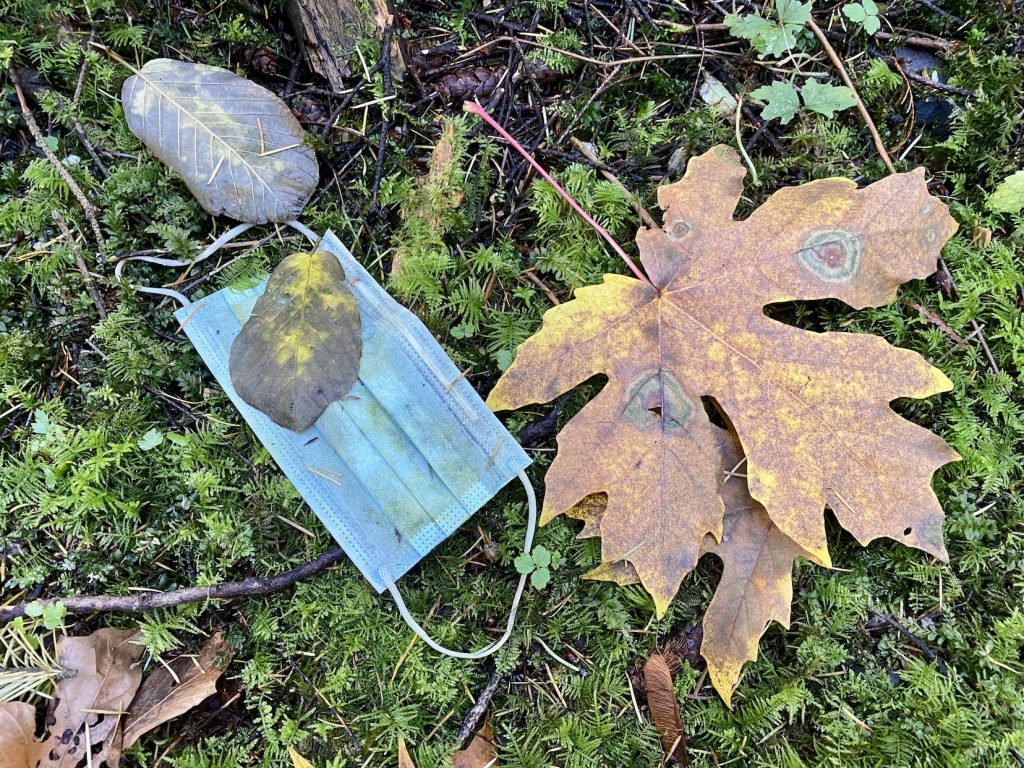
Back in the world where we don’t need to put a positive spin on just about everything, it occurs to me that if we aren’t that bothered about the dumping of plastics in the only natural space close to the city, then something as urgent as climate change; the destruction of natural ecosystems, and the threat of COVID-19, might prove us to be really too stupid to save ourselves.
Certainly it’s easier to look the other way, than fight the large scale indifference many of us have adopted. After all, who wants to face up to bad news and put a lot of effort into making things better when all we need is ignorance and a positive attitude. Let’s all go for a walk in the woods and in the face of what might now be insurmountable problems, go down indifferent but smiling.
